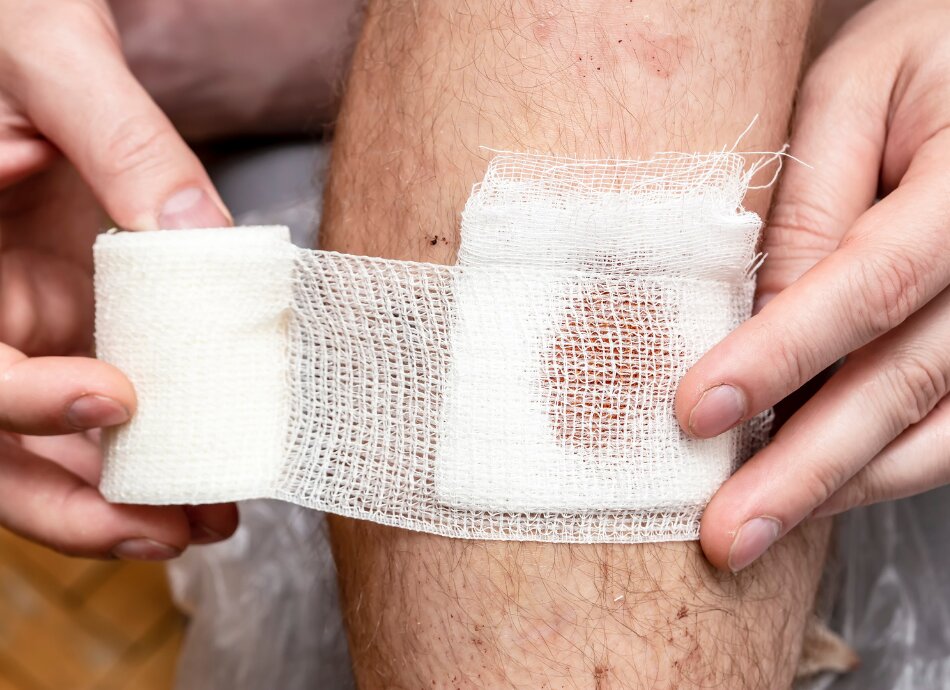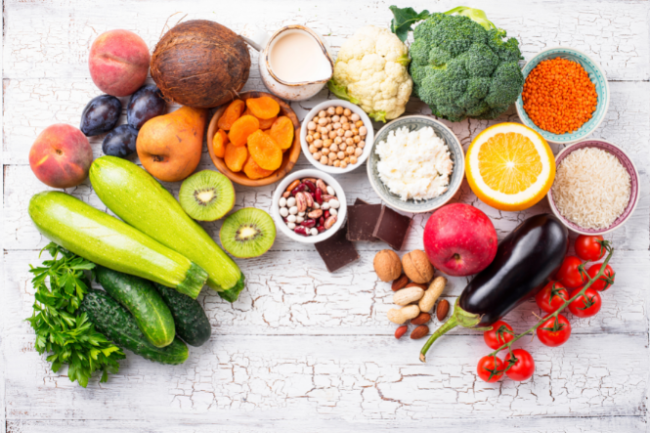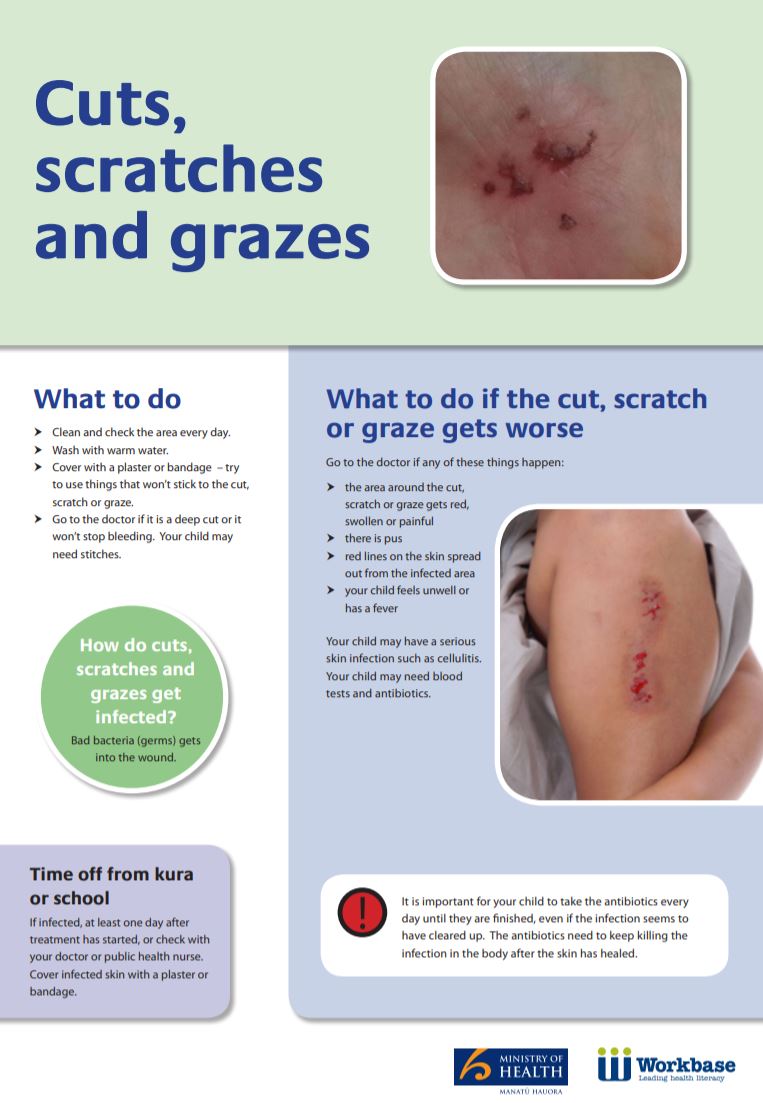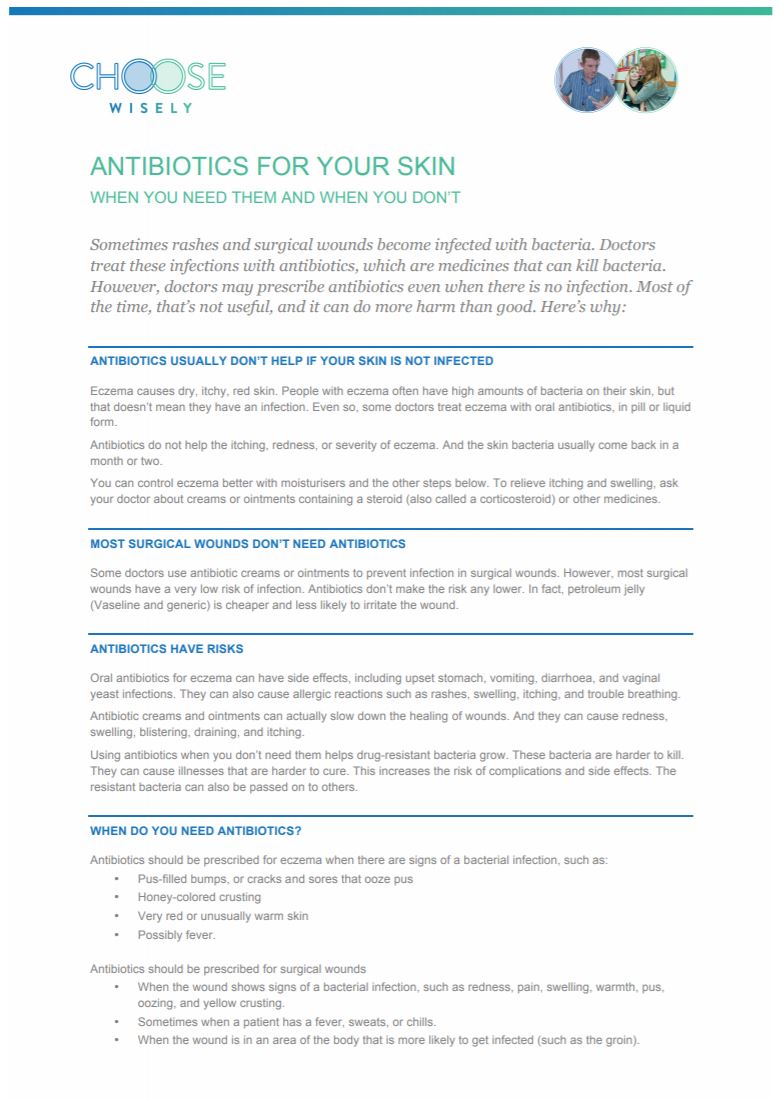Wound healing
How wounds heal and what can slow the healing process
Key info about wound healing
- A wound is a breakdown of, or injury to, your skin.
- There are 3 stages of wound healing and while a number of factors can slow down or stop the healing process there are things you can do to assist it.
- See your doctor or GP immediately if you have any signs of infection, such as: fever and chills, a wound that drains pus, smell from your wound and increased redness or heat or swelling around your wound.

Video: How to care for a healing wound
There are 3 stages of wound healing:
- Inflammatory stage – when your skin is broken down or injured, the blood vessels around it narrow to stop more bleeding and allow a blood clot to form. Once a clot is formed, the blood vessels expand to increase blood flow to the area. This brings white blood cells to remove dead tissue and bacteria, as well as nutrients to help the wound heal.
- Fibroblastic or proliferation stage – collagen starts to grow in the wound to increase the strength of the skin. This makes the edges of the wound shrink and close. More skin cells form new skin growth under the dried scab. Small blood vessels (capillaries) start to form around the area to increase blood flow to the new skin.
- Maturation stage – the blood supply to the area decreases and more collagen is added over time. With a large wound, this process can take months or years.
If any of these processes are interrupted, the wound may not heal.
Factors that can slow or stop the wound healing process include:
- poor blood supply – any medical condition that affects blood supply can slow the wound healing process, eg, diabetes
- infection
- dead skin or tissue
- bleeding or haemorrhage (a large bleed) from the wound
- further injury or damage to the wound
- poor diet, such as lack of vitamin C, zinc and protein, which are needed for wound healing
- being elderly
- medicines such as non-steroidal anti-inflammatories
- smoking
- wound dryness
- poor immune system functioning
- lack of rest or sleep.
There are some things you can do to help your wounds to heal:
Take care of your wound
- Keep your hands clean when you are changing dressings or cleaning your wound.
- Use a suitable dressing for the type of wound you have.
- Avoid picking at the healing area.
- Try to protect your wound from further damage. If you have pressure sores, avoid sitting or lying for long periods of time.
- Watch for signs of infection and seek advice on what to do.
- Ask your doctor to review your medicines as some can slow wound healing.
- Talk to your doctor about what you should take for pain.

Image credit: Canva
Maintain a healthy lifestyle
- Stop smoking if you are a smoker.
- Keep your blood glucose levels well controlled if you have diabetes.
- Eat a healthy diet with plenty of fruit and vegetables for vitamin C which helps to make collagen. Protein and zinc are important too.
- Get plenty of rest but do some exercise as well. Exercise can increase blood flow and speed up healing.
The following links provide further information about caring for your wound. Be aware that websites from other countries may have information that differs from New Zealand recommendations.
Good food for wound healing(external link) HealthInfo, NZ
How wounds heal(external link) John Hopkins Medicine, US
Apps
Brochures
Antibiotics for your skin(external link) Choosing Wisely, NZ
Cuts, scratches and grazes(external link) Health Literacy NZ
References
- General wound care(external link) 3D Regional HealthPathways, NZ
- Wounds(external link) DermNet, NZ
- Wounds – how to care for them(external link) Better Health Channel, Australia
Position document – management of biofilm(external link) Wounds International
Consensus document – surgical wound dehiscence: Improving prevention and outcomes(external link) Wounds International
Wound care – a guide to practice for healthcare professionals(external link) Ausmed
Good food for wound healing(external link) Capital & Coast DHB, NZ
Protein rich meal ideas to help wound healing(external link) Capital & Coast DHB, NZ
Apps
Brochures

Health Literacy NZ

Choosing Wisely, NZ, 2016
Credits: Healthify editorial team. Healthify is brought to you by Health Navigator Charitable Trust.
Reviewed by: Dr Arna Letica, FRNZCGP, Auckland
Last reviewed:
Page last updated:





